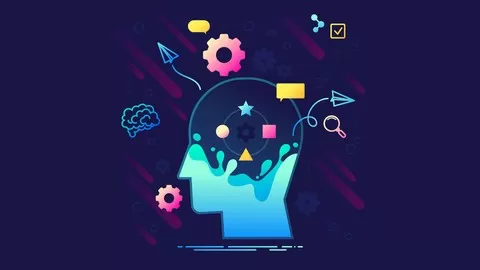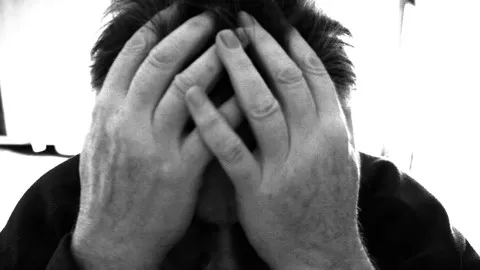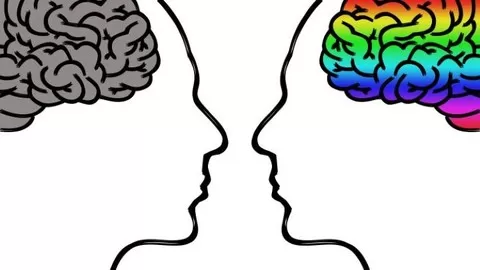This course serves as a comprehensive overview of the central theories and practices of contemporary Existential Therapy (ET).
It is ideal for anyone working in the mental health sector and is especially valuable to qualified:
•psychotherapists
•counsellors
•psychiatrists
•clinical psychologists
•life coaches and pastoral workers.
As well as those training towards such professions.
Whilst the course may also of interest to non-professionals with a personal interest in psychology and philosophy: specialist academic language is used throughout the course and it is pitched at a postgraduate level; it is mainly intended for mental health professionals and refers to therapeutic techniques and strategies throughout.
The Goals of Existential Therapy
Existential therapies have different goals to more conventional approaches to mental health, principle goals include:
•Helping people to live more authentic lives and avoid various forms of inauthentic behaviour
•Maximising autonomy and freedom by encouraging people to assume responsibility for their choices (and their lives)
•Helping people to find (or construct) a sense of meaning, purpose and value in life
•Cultivating wisdom and the pursuit of philosophical truth: overcoming self-deception and harmful delusions
•Helping people to face reality and certain “existential givens” (such as death/mortality) so that they can live more full and engaged lives
Existential therapies are firmly rooted in existential philosophy and often draw on the ideas of prominent existential philosophers such as Kierkegaard, Buber, Nietzsche & Sartre – most of whom were writing in a time where the distinction between philosophy and psychology was less rigid than it is today. Likewise, existential therapies tend to be heavily influenced by phenomenology and phenomenological philosophers (such as Hegel and Heidegger) .
Due to this influence of phenomenology existential therapies tend to emphasise subjectivity and inter-subjectivity; the nature and significance of phenomenology are something explored in this course. Helping people to reconnect with the subjective nature of their lives (instead of viewing themselves as passive objects or labels or in terms of overly reductionist biographical narratives) is both an important goal and a central method of many approaches to existential therapy.
Furthermore, these approaches to therapy emphasise the role of will, choice, and volition in the challenges (and sometimes symptoms) that present in the lives of patients/clients and in the therapeutic process: they are, in part, a reaction to overly-deterministic and reductionist accounts of human behaviour and psychology.
In truth, there is no single ‘Existential Therapy’ but multiple ‘existential therapies’ – different branches of therapy and psychotherapy that are informed by different existential philosophers and existential psychologists: the course covers the three most prominent existentially-orientated approaches to therapy and psychotherapy:
•Logotherapy
•Existential-Humanistic Therapy
•Existential Phenomenological Therapy (and ‘The British School’)
It also takes an in-depth look at the model of existential psychotherapy developed by Irvin Yalom and explores more recent developments in the field: Existential-Positive Psychology, Positive Psychology 2.0, and potential avenues for integrating existential therapy with Cognitive Behavioural Therapy (CBT)
The Aims of The Course
This course focuses on outlining, describing and explaining the central concepts, theories and practices of Existential Therapy: it does not pretend to present a particularly critical or evaluative analysis, it does not explore the evidential basis of existential therapy nor does it attempt to ‘sell you’ Existential Therapy. Critical appraisal of the value of existential therapy is something I will leave to you.
What I can promise, however, is that you will have a firm grasp of Existential Therapy by the end of this course as well as some new, existentially-informed, therapeutic techniques to experiment with in your practice as a mental health professional. Moreover, I can promise you that the course is well-researched and that I have done my utmost to do this fascinating and unique approach to therapy justice and to represent it both fairly and comprehensively.
Aside from my hope that this course will enhance your practice as a therapist and bring great benefit to those with whom you work, it is also my hope that you will find the concepts and theories of the course personally relevant, engaging, and perhaps even challenging!
Finally: one of my aims is to offer good value – this desire is borne partly out of my own frustration at how expensive high-quality training is for counsellors and psychotherapists and how limited exposure to these theories and ideas is as a result. This course is a fraction of the price of more established training courses for Existential Therapy and my ambition is not only to match those courses but to surpass them in quality.
Important Information & Considerations
•The course includes twenty video-learning sessions*. Aside from containing in-depth explanations of Existential Therapy these sessions also include various learning and reflection activities that you should engage in if you hope to maximise your learning.
•Included in the course is a printable workbook** that features learning and reflection tasks: this workbook should be printed off and either bound as a booklet or kept together in a file prior to beginning the first learning session. Every learning-session has its own double-sided worksheet (as a section of the workbook) and engaging with these worksheets and learning activities is something expected of students who wish to get the most out of this course.
•This course asks that you utilise an ‘active learning’ approach and, in true existential fashion, asks that you take responsibility for getting the most out of it. If you are looking for a course in which you passively absorb information – as if listening to an audio book – this course is not for you! Likewise: if you cannot print the workbook/worksheets because you do not have access to a printer – that will be an obstacle to learning.
•Each learning session also includes additional links to relevant external resources such as articles and videos: these are intended to support your learning and taking the time to explore these additional resources will help you to perfect your expertise in existential approaches to therapy.
•My intention is to create expertise: this means it is heavy on theory and doesn’t ‘pull any punches’ when it comes to detailed exploration of complicated ideas and concepts. It is not a ‘dumbed-down’ course and aims to be intellectually and academically rigorous and challenging.
•Those who complete the video learning-sessions will receive a certificate of completion automatically from Udemy: an ‘Advanced Certificate in Existential Therapy, Psychotherapy & Counselling’ can also be claimed (at no additional cost) by students who successfully complete the course and additional assessment tasks (outlined in the aforementioned printable workbook). At the time of release (July, 2020) the Advanced Certificate is not formally accredited though it is my intention to remedy this in due course.
*If the course is sufficiently popular and well-received, I intend to expand upon it and add new learning sessions over time.
**The printable workbook is attached to Lecture 1, once registered you should download it there.









